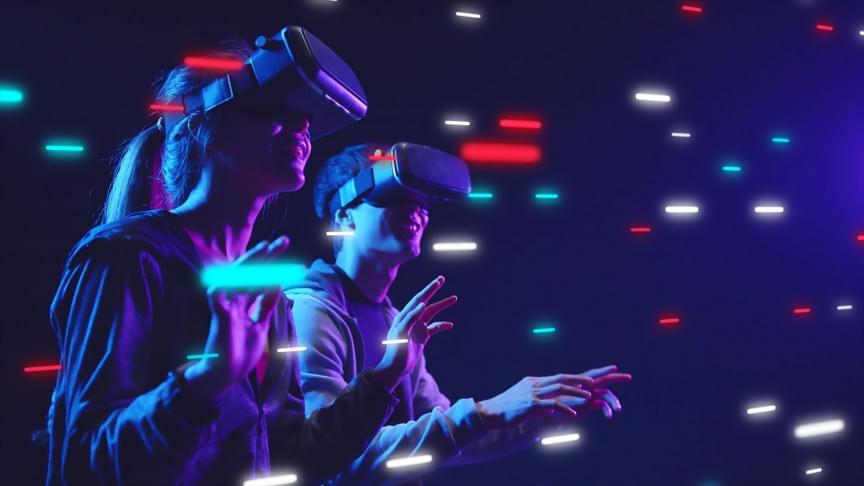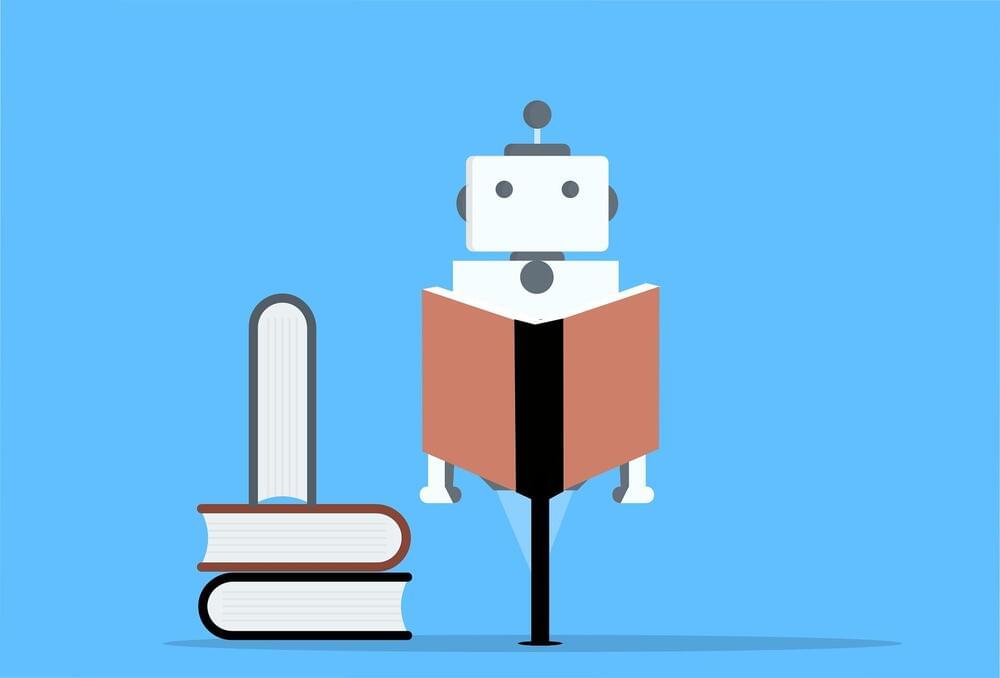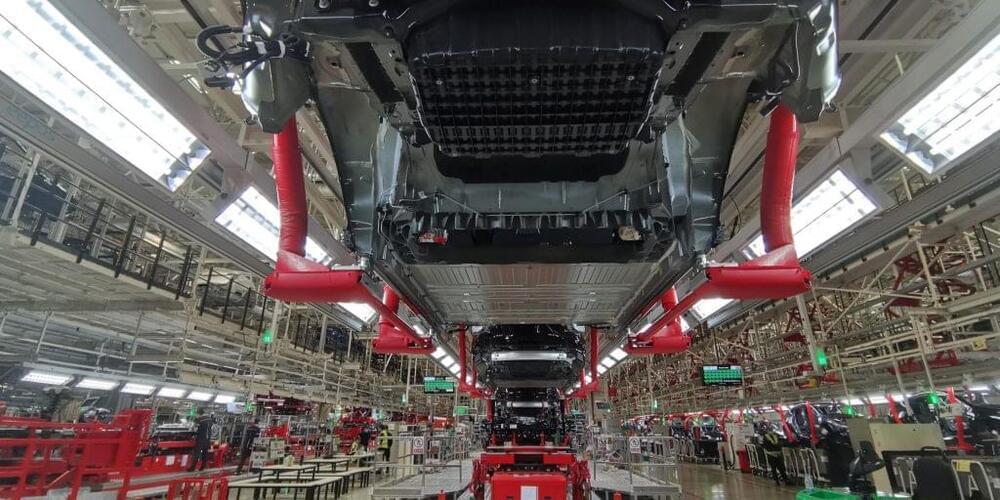A 36-year-old Florida man was sentenced by a Manhattan federal court to six months of home detention for knowingly allowing his cryptocurrency trading platform to act as a money laundering tool, the Department of Justice announced Friday.





New estimates from the World Health Organization (WHO) show that the full death toll associated directly or indirectly with the COVID-19 pandemic (described as “excess mortality”) between 1 January 2020 and 31 December 2021 was approximately 14.9 million (range 13.3 million to 16.6 million). “These sobering data not only point to the impact of the pandemic but also to the need for all countries to invest in more resilient health systems that can sustain essential health services during crises, including stronger health information systems,” said Dr Tedros Adhanom Ghebreyesus, WHO Director-General. “WHO is committed to working with all countries to strengthen their health information systems to generate better data for better decisions and better outcomes.” Excess mortality is calculated as the difference between the number of deaths that have occurred and the number that would be expected in the absence of the pandemic based on data from earlier years. Excess mortality includes deaths associated with COVID-19 directly (due to the disease) or indirectly (due to the pandemic’s impact on health systems and society). Deaths linked indirectly to COVID-19 are attributable to other health conditions for which people were unable to access prevention and treatment because health systems were overburdened by the pandemic. The estimated number of excess deaths can be influenced also by deaths averted during the pandemic due to lower risks of certain events, like motor-vehicle accidents or occupational injuries. Most of the excess deaths (84%) are concentrated in South-East Asia, Europe, and the Americas. Some 68% of excess deaths are concentrated in just 10 countries globally. Middle-income countries account for 81% of the 14.9 million excess deaths (53% in lower-middle-income countries and 28% in upper-middle-income countries) over the 24-month period, with high-income and low-income countries each accounting for 15% and 4%, respectively. The estimates for a 24-month period (2020 and 2021) include a breakdown of excess mortality by age and sex. They confirm that the global death toll was higher for men than for women (57% male, 43% female) and higher among older adults. The absolute count of the excess deaths is affected by the population size. The number of excess deaths per 100,000 gives a more objective picture of the pandemic than reported COVID-19 mortality data.“Measurement of excess mortality is an essential component to understand the impact of the pandemic. Shifts in mortality trends provide decision-makers information to guide policies to reduce mortality and effectively prevent future crises. Because of limited investments in data systems in many countries, the true extent of excess mortality often remains hidden,” said Dr Samira Asma, Assistant Director-General for Data, Analytics and Delivery at WHO. “These new estimates use the best available data and have been produced using a robust methodology and a completely transparent approach.”“Data is the foundation of our work every day to promote health, keep the world safe, and serve the vulnerable. We know where the data gaps are, and we must collectively intensify our support to countries, so that every country has the capability to track outbreaks in real-time, ensure delivery of essential health services, and safeguard population health,” said Dr Ibrahima Socé Fall, Assistant Director-General for Emergency Response. The production of these estimates is a result of a global collaboration supported by the work of the Technical Advisory Group for COVID-19 Mortality Assessment and country consultations. This group, convened jointly by the WHO and the United Nations Department of Economic and Social Affairs (UN DESA), consists of many of the world’s leading experts, who developed an innovative methodology to generate comparable mortality estimates even where data are incomplete or unavailable. This methodology has been invaluable as many countries still lack capacity for reliable mortality surveillance and therefore do not collect and generate the data needed to calculate excess mortality. Using the publicly available methodology, countries can use their own data to generate or update their own estimates. “The United Nations system is working together to deliver an authoritative assessment of the global toll of lives lost from the pandemic. This work is an important part of UN DESA’s ongoing collaboration with WHO and other partners to improve global mortality estimates,” said Mr Liu Zhenmin, United Nations Under-Secretary-General for Economic and Social Affairs. Mr Stefan Schweinfest, Director of the Statistics Division of UN DESA, added: “Data deficiencies make it difficult to assess the true scope of a crisis, with serious consequences for people’s lives. The pandemic has been a stark reminder of the need for better coordination of data systems within countries and for increased international support for building better systems, including for the registration of deaths and other vital events.” Note for editors: The methods were developed by the Technical Advisory Group for COVID-19 Mortality Assessment, co-chaired by Professor Debbie Bradshaw and Dr. Kevin McCormack with extensive support from Professor Jon Wakefield at the University of Washington. The methods rely on a statistical model derived using information from countries with adequate data; the model is used to generate estimates for countries with little or no data available. The methods and estimates will continue to be updated as additional data become available and in consultation with countries.

A cellphone-sized device automatically adjusts a home’s power use up or down to save the consumer money and increase the resiliency of the electric grid.
The effects of climate change are pushing electrical grids around the world to their limits. Last year, unprecedented cold weather caused people in Texas to turn up their thermostats, which overwhelmed the power grid and caused days-long power outages. And in California, the power is turned off before there is a high possibility of a fire.
To combat the electric grid’s vulnerabilities and cut down on the use of non-renewable sources of energy, researchers at the Department of Energy’s SLAC National Accelerator Laboratory have developed technology that automatically adjusts a home’s power use up or down in response to fluctuating prices that are established by real-time market demand.

Jack in the Box has become the latest American food chain to experiment with automation, as it seeks to handle staffing challenges and improve the efficiency of its service.
Jack in the Box is one of the largest quick service restaurant chains in America, with more than 2,200 branches. With continued staffing challenges impacting its operating hours and costs, Jack in the Box saw a need to revamp its technology and establish new systems – particularly in the back-of-house – that improve restaurant-level economics and alleviate the pain points of working in a high-volume commercial kitchen.

To better automate reasoning, machines should ideally be able to systematically revise the view they have obtained about the world. Timotheus Kampik’s dissertation work presents mathematical reasoning approaches that strike a balance between retaining consistency with previously drawn conclusions and rejecting them in face of overwhelming new evidence.
When reasoning and when making decisions, humans are continuously revising what their view of the world is, by rejecting what they have previously considered true or desirable, and replacing it with an updated and ideally more useful perspective. Enabling machines to do so in a similar manner, but with logical precision, is a long-running line of artificial intelligence research.
In his dissertation, Timotheus advances this line of research by devising reasoning approaches that balance retaining previously drawn conclusions for the sake of ensuring consistency and revising them to accommodate new compelling evidence. To this end, he applies well-known mathematical principles from economic theory to formal argumentation, an approach to logic-based automated reasoning.

Tesla Giga Shanghai has resumed over 80% production along with several other companies, according to Chinese official Zhang Hongtao — the chief engineer of the Shanghai Economics and Information Technology Commission.
China created a “whitelist” to support companies resuming production and minimize the impact of Covid along the supply chain. As of Saturday, April 30, approximately 1,854 companies have made it onto the whitelist, including Tesla, and are authorized to resume work.
During a press conference, Zhang stated that Shanghai created a second list of 1,188 companies that can resume work. According to the Global Times, the companies fall into the automobile manufacturing, equipment manufacturing, and biomedicine sector.

Elon talks about x-risks and making us a multi-planetary species, amongst other things.
What’s on Elon Musk’s mind? In this exclusive conversation with head of TED Chris Anderson, Musk details how the radical new innovations he’s working on — Tesla’s intelligent humanoid robot Optimus, SpaceX’s otherworldly Starship and Neuralink’s brain-machine interfaces, among others — could help maximize the lifespan of humanity and create a world where goods and services are abundant and accessible for all. It’s a compelling vision of a future worth getting excited about. (Recorded at the Tesla Texas Gigafactory on April 6, 2022)
Just over a week after this interview was filmed, Elon Musk joined TED2022 for another (live) conversation, where he discussed his bid to purchase Twitter, the biggest regret of his career, how his brain works and more. Watch that conversation here: https://youtu.be/cdZZpaB2kDM
0:14 A future that’s worth getting excited about.
2:44 The sustainable energy economy, batteries and 300 terawatt hours of installed capacity.
7:06 “Humanity will solve sustainable energy.“
8:47 Artificial intelligence and Tesla’s progress on full self-driving cars.
19:46 Tesla’s Optimus humanoid robot.
21:46 “People have no idea, this is going to be bigger than the car.“
23:14 Avoiding an AI dystopia.
26:39 The age of abundance.
28:20 Neuralink and brain-machine interfaces.
36:55 SpaceX’s Starship and the mission to build a city on Mars.
46:54 “It’s the people of Mars’ city.“
50:14 What else can Starship do and help explore?
53:18 Possible synergies between Tesla, SpaceX, The Boring Company and Neuralink.
54:44 Intercontinental travel via Starship.
58:41 Being a billionaire.
1:02:31 Philanthropy as love of humanity.
1:03:39 Population collapse and birth rates as a threat to future of human civilization.
1:04:13 Elon’s drive.
1:06:06 “I think if you want the future to be good, you must make it so.”
If you love watching TED Talks like this one, become a TED Member to support our mission of spreading ideas: http://ted.com/membership.